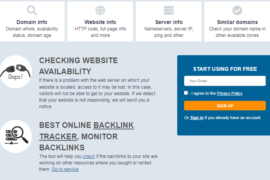All those who are working online—SEO specialists, copy writers, business persons, and online marketers, to name a few—very well know that keywords play a huge role, especially if you’re talking about Google. The rule sounds complex, but it can be simplified to this: the more that you can establish your site’s relevancy to your keywords, the higher will be your ranking in search engines. For example, if your business is a flower shop, you may want to high rank in key words and phrases like “flower services” or “flower shops.”
This has worked so far, and yet there are still errors that need to be corrected. For instance, how many times did the search results give you websites that talk about that vermin called mouse when you’re simply looking for that computer input device? In order to better establish the relationships of keywords, based on their real use in the website that you’re currently working, Google came up with another type of optimization: LSI, or latent semantic indexing.
What does it mean?
LSI is based on certain algorithm levels as well as matching of text patterns that are found in the webpage. Simply put, if you’re searching for mouse, the computer device, the algorithm will relate it to other words found in the webpage such as computers and perhaps names of well-known brands, pulling up more relevant websites for you. The more that you become specific with your search, though, the more it will be able to relate your query to the pages currently indexed and reveal those that closely match to your search.
There are still not a lot of people who are following LSI, but the rate things are going, it wouldn’t be long. So you may want to do some tweaking into your website to increase your chances of being seen, and appear more relevant to your targeted keywords.




